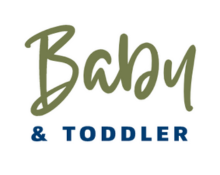
Experiencing pain or discomfort during letdown while breastfeeding is not uncommon and can be attributed to a few different factors. Here are some possible causes and suggestions for managing painful letdown:
Overactive letdown: If you have a strong and forceful milk ejection reflex (letdown), it can cause discomfort or pain as the milk rapidly flows through the milk ducts. This can lead to a sensation of intense tingling or even a stinging feeling. To manage an overactive letdown, you can try the following techniques:
- Use a laid-back position while breastfeeding to allow gravity to slow down the milk flow.
- Use breast compression techniques to control the flow of milk. Gently squeeze your breast near the areola to slow down the flow before your baby latches or during the feeding if needed.
- Consider expressing a small amount of milk by hand or with a breast pump before nursing to reduce the initial forcefulness of the letdown.
Engorgement: Painful letdown can occur when your breasts are engorged, meaning they are overly full of milk. Engorgement can cause increased pressure within the breast tissue, leading to discomfort during letdown. To manage engorgement-related pain:
- Ensure effective milk removal by breastfeeding frequently or expressing milk regularly.
- Apply warm compresses or take a warm shower before breastfeeding to help soften the breast tissue and promote milk flow.
- Consider expressing a small amount of milk before nursing to relieve some pressure and make it easier for your baby to latch.
Nipple issues: Sore or cracked nipples can contribute to painful letdown. If your nipples are damaged, the sensation of milk flow during letdown can be more painful. To address nipple issues:
- Ensure a proper latch to prevent further damage to your nipples. Seek guidance from a lactation consultant if needed.
- Apply a lanolin-based nipple cream or a natural nipple balm to soothe and protect your nipples between feedings.
Hormonal changes: Hormonal fluctuations can also play a role in painful letdown. Some women may experience increased sensitivity during certain phases of their menstrual cycle. Painful letdown related to hormonal changes is typically temporary and resolves on its own.
If the pain during letdown persists or is severe, it is advisable to consult with a healthcare professional or a lactation consultant. They can assess your specific situation, provide further guidance, and offer additional strategies to help manage the pain.
